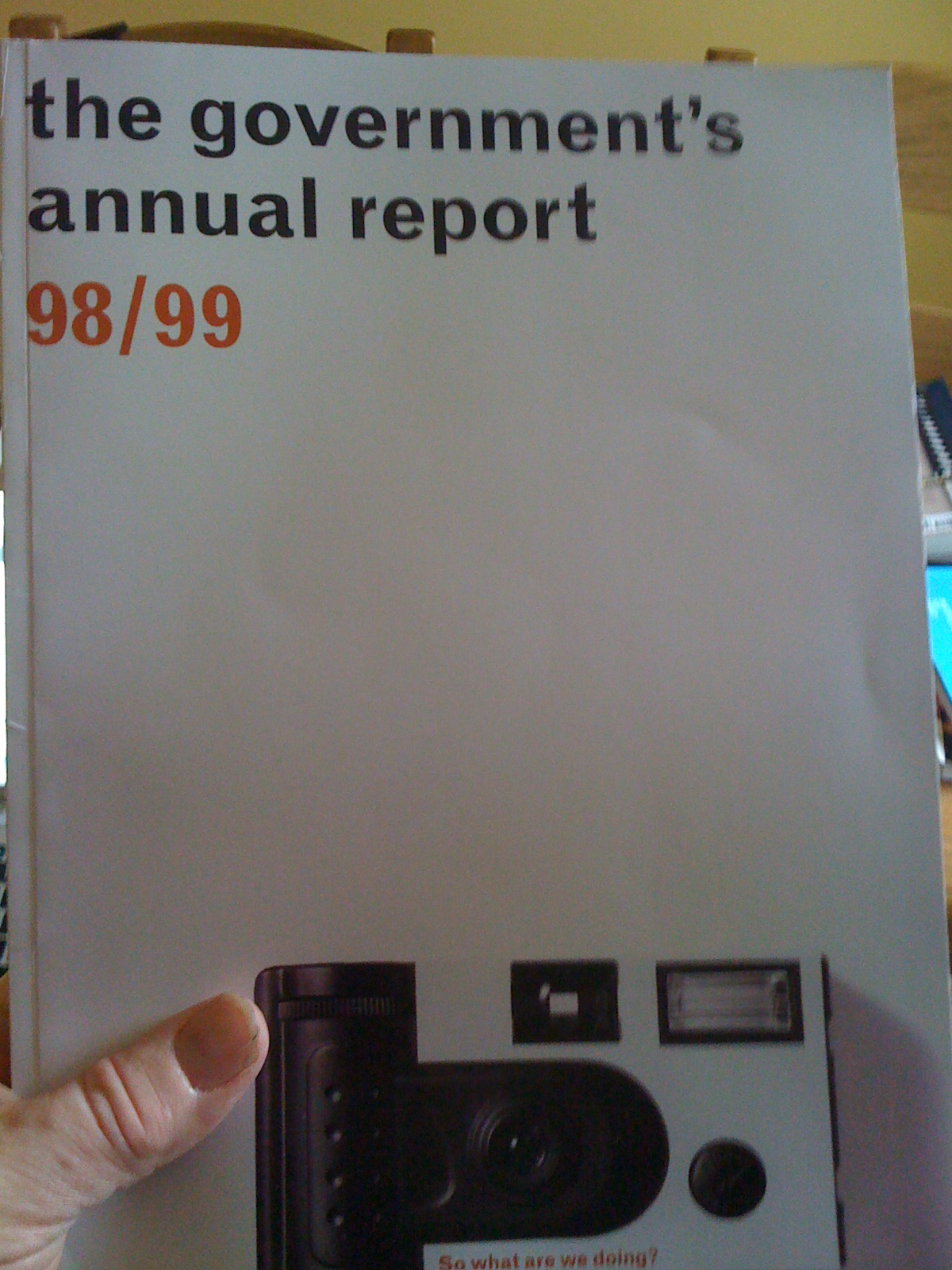A few years ago the big fad was “organisational learning”. It still continues, but the British government seems intent on inventing a new concept: organisational amnesia. Here’s a small, but highly symbolic, example.
 Back in the heady days when the New Labour government was heralding in a new dawn, it rather bravely (as Sir Humphrey would say) decided to start publishing an Annual Report on its achievements. These duly appeared in July 1998, 1999 and 2000 (at a cost to the taxpayer of £555,000). They were even on sale in all good, and some not so good, bookshops.
Back in the heady days when the New Labour government was heralding in a new dawn, it rather bravely (as Sir Humphrey would say) decided to start publishing an Annual Report on its achievements. These duly appeared in July 1998, 1999 and 2000 (at a cost to the taxpayer of £555,000). They were even on sale in all good, and some not so good, bookshops.
At the time they were widely ridiculed in the media. They were only reporting what was going well, it was said (which wasn’t quite true). They results cited weren’t audited by anyone (that was true). They were part of the New Labour spin machine (sort of true).
I remember putting some of these criticisms, and other more specific ones to the head of the civil service, Sir Richard Wilson, in public at a meeting in September 2000. He defended the reports in the meeting, but afterwards he came up to me for a quiet word. It’s OK, he said, we’ve solved the problems with the Annual Reports. I was fascinated, and for a moment naively excited that maybe they were going to start doing it properly, so I asked ‘how’? Easy, he replied, we’re going to stop publishing them. And they did.
But they didn’t just stop publishing them. They also seem, rather like Stalin having Trotsky airbrushed out of pictures, to have buried the very memory of them.
I’m preparing a book on the history of ‘strategy in government’, including the attempts at reporting on their achievements, so I thought it would be a good idea to have another look at these reports. My copies are long gone – lent to students who never returned them probably. So I asked the Cabinet Office. Nothing. HM Treasury? Nada. The (privatised) official government publisher, The Stationary Office (who produced them) – I managed to get hold of one (see picture). The always helpful and efficient House of Commons staff told me they have copies – but I’d need to go in a photocopy them myself. Our Library tried the British Library, and despite having ISBNs at first they denied the reports existed. Finally the BL came up with copies.
What does it tell us about ‘organisational learning’ in Government when the Government that produces three Annual Reports to the citizens, at a considerable cost, cannot even find copies of them in their own archives just over a decade later? I pity future historians, but more to the point I pity future policy-makers. If Whitehall can become this senile – and this is only an example of what I said to the Public Administration Select Committee enquiry on ‘Good Government’ last year has become a widespread problem – what hope is there for learning in Government?
POSTSCRIPT
My colleague Christopher Pollitt points out that he has talked about organisational forgetting in his book Time, Policy, Management – Governing With The Past (Oxford 2008) and in his article BUREAUCRACIES REMEMBER, POST-BUREAUCRATIC ORGANIZATIONS FORGET? Public Administration Volume 87, Issue 2, Date: June 2009, Pages: 198-218